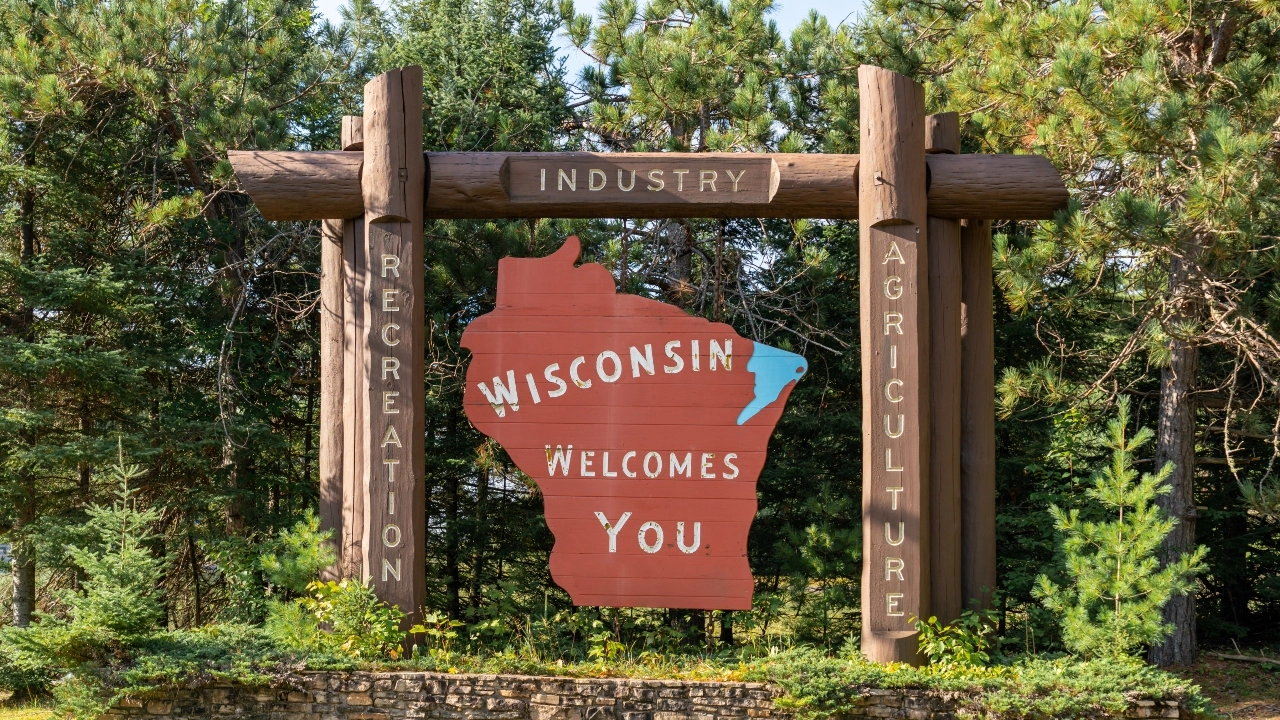Wisconsin would be the 41st state to legalize medical cannabis if a Republican-sponsored proposal introduced Monday becomes law.
However, even the bill’s sponsor admit it’s a longshot despite strict qualifying conditions, a ban on smokeable flower, and private business opportunities, according to ABC affiliate WISN.
In contrast to its neighbors, Wisconsin remains the lone standout in the Great Lakes Region without recreational or medical cannabis laws on the books.
Meanwhile, bordering Illinois and Minnesota both have adult-use retail markets, and Iowa has medical marijuana.
That would change if a bill introduced by Republican Senate President Mary Felzkowski and fellow Republican state Sen. Patrick Testin and state Rep. Patrick Snyder becomes law.
“Medicine is never one-size-fits-all, and it is time for Wisconsin to join the majority of the country in adding another option, which may help patients find the relief they need,” a sponsorship memo circulating in Madison states.
Wisconsin medical marijuana proposal introduced
Under the proposal, patients could qualify for MMJ access after a physician’s diagnosis of “a serious medical condition,” such as cancer, multiple sclerosis, PTSD or severe chronic pain.
A new Office of Medical Cannabis Regulation would register patients and establish rules for cannabis businesses.
In contrast to an MMJ bill that failed last year, private enterprise would be legal.
According to draft language provided to MJBizDaily on Wednesday, the number of medical cannabis growers, processors and dispensaries would not be capped.
However, dispensaries would be required to employ a pharmacist that would establish a “daily dosage” for the cannabis patient after consulting with the patient’s physician.
MMJ dispensaries would also be banned “from advertising their services to the general public, with certain exceptions.”
No smokeable cannabis but no cannabis taxes
Cannabis products would be limited to “concentrates, oils, tinctures, edibles, pills, topical forms, gels, creams, vapors, patches, liquids or forms administered by a nebulizer,” according to bill language.
Smokeable cannabis would be banned.
Processors and cultivators would pay a $10,000 licensing fee, with labs and dispensaries’ fees set at $5,000.
Ownership restrictions mean at least 80% of principal officers must be Wisconsin residents.
There does not appear to be a provision for home cannabis cultivation.
Notably, cannabis patients would be exempt from state sales taxes.
Cannabis reform popular in Wisconsin but not with lawmakers
Cannabis legalization is popular in Wisconsin, where 83% of respondents to a 2024 Marquette Law School poll said they support MMJ, with 63% in favor of adult-use legalization.
Despite that, efforts to change cannabis laws in the state have failed.
The Republican-controlled Legislature earlier this year removed cannabis legalization from Democratic Gov. Tony Evers’ budget proposal.
That followed lawmakers’ 2023 rejection of a separate Evers legalization proposal.
Lawmakers also shot down a 2024 Republican pitch for MMJ with state-run retail sales.
Even with this compromise language, passing MMJ in Wisconsin will “take a pretty gigantic Hail Mary,” Snyder, one of the three sponsors, told WISN.
“I just know my road in the Assembly will be challenging,” he told the station.
In the meantime, Republican lawmakers are also pushing a ban on hemp-derived THC products.
Medical Disclaimer:
The information provided in these blog posts is intended for general informational and educational purposes only. It is not a substitute for professional medical advice, diagnosis, or treatment. Always seek the advice of your physician or other qualified healthcare provider with any questions you may have regarding a medical condition. The use of any information provided in these blog posts is solely at your own risk. The authors and the website do not recommend or endorse any specific products, treatments, or procedures mentioned. Reliance on any information in these blog posts is solely at your own discretion.






